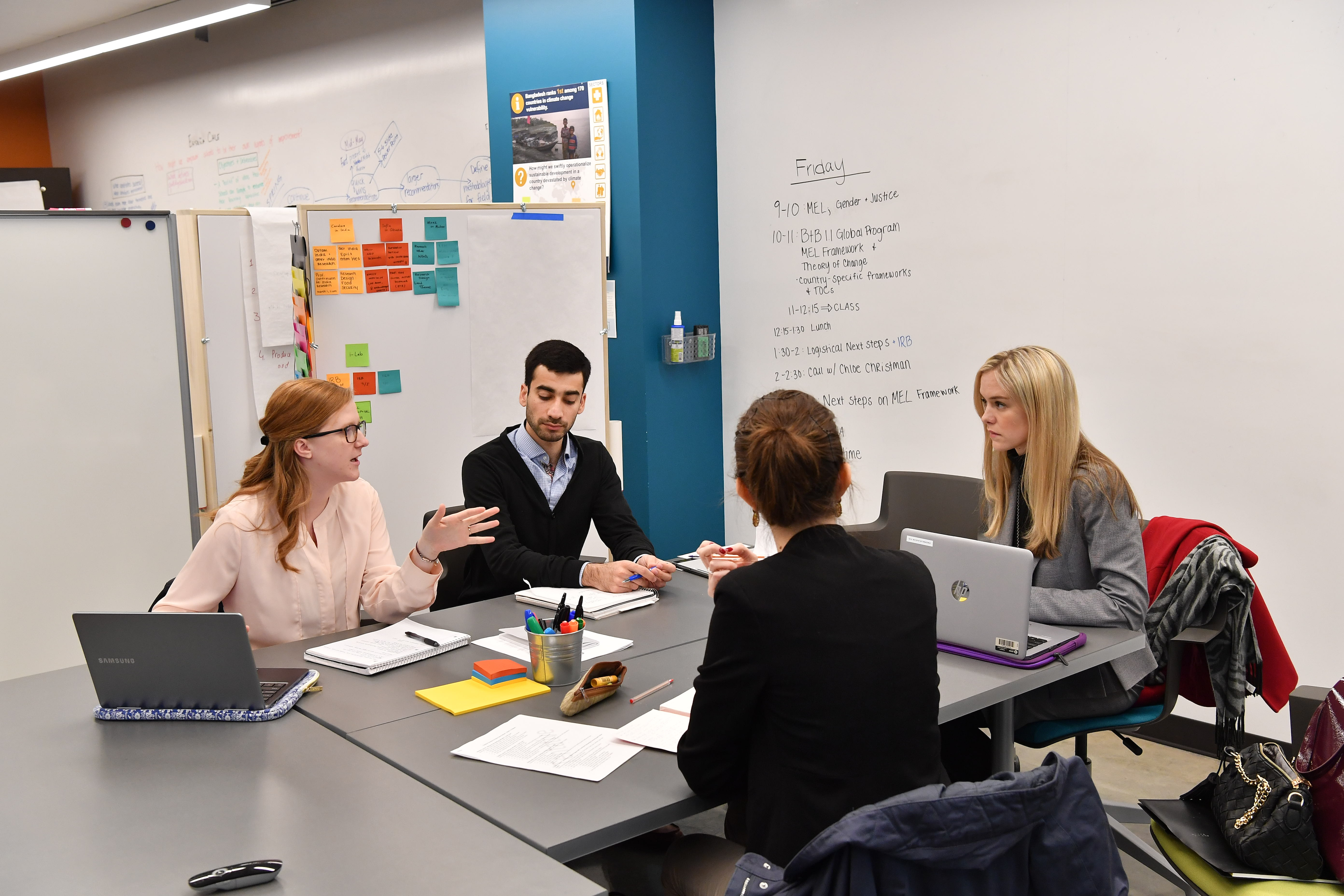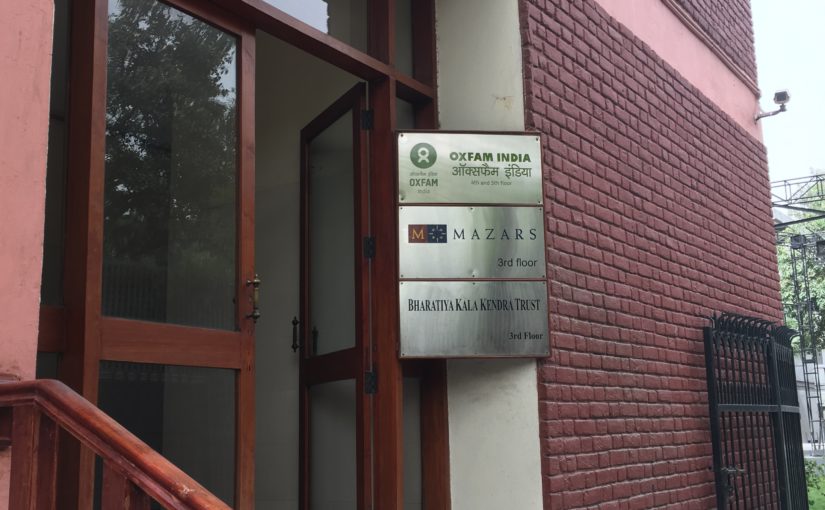“A girl here to see you, ma’am, from Outside India.”
This Hindi whisper introduced me to my supervisor at Oxfam India, and ultimately, to my first week here in New Delhi. This sense of otherness—expressed both by the “outside” designation that my fair skin and reddish hair make obvious, and my inability to understand the local language—is constant.
Though I’ve lived and traveled abroad alone before, Delhi presents an entirely new and overwhelming landscape for me. The sights and sounds and smells are constant and pervasive. Rickshaws, motorbikes, and compact cars zoom past me without seatbelts or more than the occasional nod to traffic rules. I weave between dogs and hurried strangers on my way to and from the metro for work every day, feigning a confidence and sense of direction I do not actually feel. As an American with only the cultural knowledge I researched in preparation for this position, I am out of place.
Though scary, this otherness also presents a chance to continue an exploration of self, privilege, and positionality that I’ve been struggling with for the past several years. Development work has historically involved using outside money and staff to “help” a community in another country. Of course, this paternal arrangement raises complex and valid questions. Why should outsiders take jobs in place of local citizens? How can a foreign organization know the needs of the community more than the community themselves? What is our right, basically, to enter these communities, assert our Otherness, and take positions and decisions that the community members themselves are capable of fulfilling?
UNDERSTANDING DEVELOPMENT THROUGH A NEW LENS
The Keough School of Global Affairs’ concentration in Sustainable Development, and this i-Lab project in particular, recognizes these questions and attempts to find a new path for development. Rather than the prescriptive and vertical relationships traditionally found in development, the field is moving toward a more inclusive and horizontal approach. Local organizations hire local staff to fulfill the project mandate, and use insight from various organizations to uncover the pressing problems and culturally appropriate responses to them. While there’s still much work to be done in this transition, the early progress is promising.
TRANSLATING LOCAL INSIGHT TO GLOBAL IMPACT
My experiences in the Master of Global Affairs program and the Keough School i-Lab has helped me find my own role within this shifting development paradigm.

I am working with Oxfam, together with fellow Master of Global Affairs students Sofía del Valle and Moaz Uddin, to support their Behind the Brands (BtB) campaign—a global effort to hold the top 10 food and beverage companies responsible for their supply chains, environmental impact, and worker treatment. Eight of the 10 largest companies are American, and all profoundly impact the countries where they source their ingredients. The BtB campaign works with these companies to improve their business practices in areas like improved farmer treatment, water stewardship, and respect for land rights. Our team is working with Oxfam America, Oxfam India, Oxfam Ghana, and Oxfam Malawi to support the implementation phase of this campaign.
I am working with Oxfam India. India is the world’s second largest producer of sugarcane in the world and a major source country for The Coca Cola Company and PepsiCo. I will be traveling to sugarcane plantations with Oxfam India staff to speak with sugar farmers about their treatment by and experience with these companies. This information will help us understand the actions the companies have already taken, and where they need to do more.
To me, this project is a great example of the shifting development scheme. Oxfam America works in tandem with local staff at Oxfam India, Oxfam Malawi, and Oxfam Ghana to work directly with the farmers that produce the sugar, cocoa, and other commodities upon which these companies so heavily rely. By engaging U.S. companies and holding them accountable to higher standards, I feel encouraged to connect my U.S. nationality and related privilege with sustainable development work. Taking responsibility for the impact that American consumerism and lifestyle has on other countries is humbling and necessary.
In just a few months, I will regroup in Washington, DC, with my Keough School teammates. I’m excited to share our experiences—both good and bad—and hear about the impressions of Ghana, Malawi, and India from diversely Chilean, Pakistani, and American perspectives. This project has offered a new way to think of my responsibility and positionality as an American. I’m grateful for and challenged by the opportunity.

